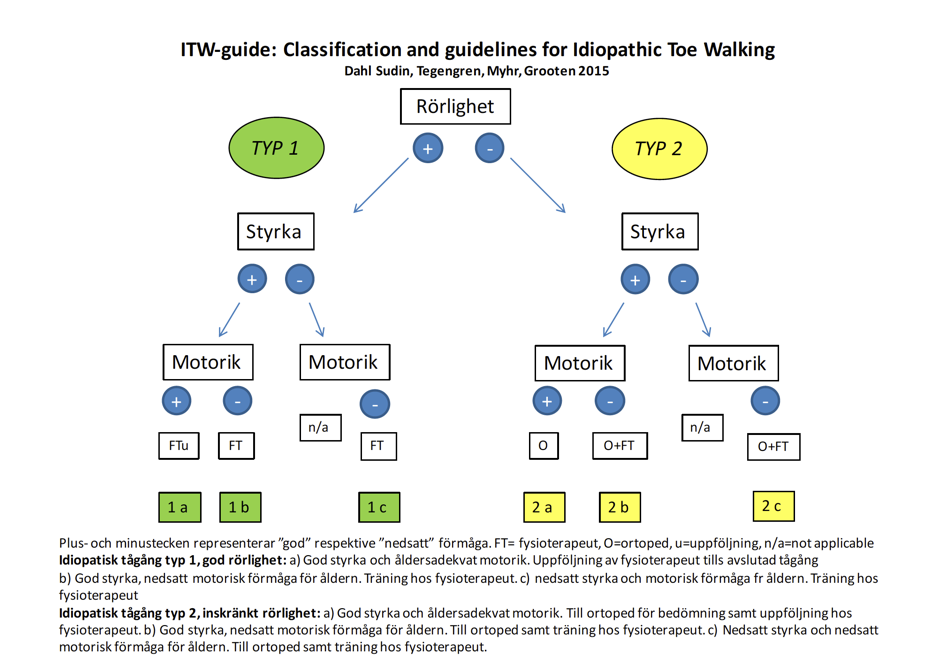Children who walk on their toes, even though they can, on request, walk with their entire foot down, are referred to as idiopathic toe walkers. There should be no other cause for toe walking, and it should arise in connection with the initiation of walking. For most children, toe walking is not a problem, and many stop walking on their toes during preschool years, sometimes a bit later after starting school. The treatment of children with ITW is not aimed at the toe walking itself but the problems that may arise if the child has a shortened Achilles tendon, becomes weak in the muscles, or has reduced motor skills compared to children of the same age. If a child is lagging behind in motor skills, motor training is needed – it is crucial for being able to participate in play with peers. If mobility is reduced, the child may need to be assessed by an orthopedic specialist and potentially undergo Achilles tendon lengthening. If the child is weak in the muscles, strength training may be necessary. If the child has good function, full mobility, and strength, then toe walking is not a problem. A physiotherapist can regularly follow up with the child to ensure that they maintain mobility, strength, and motor function.
ITW-guide
The ITW guide is a flowchart that categorizes children with ITW into 2 types depending on whether they have reduced mobility or not. Further classification regarding strength and motor skills is done, and recommendations for follow-up, training, or assessment by a physiotherapist or orthopedic specialist are provided depending on the child’s clinical presentation. The ITW guide helps streamline healthcare by identifying which authority the child should be referred to. The ITW guide is a result of clinical reasoning based on research on strength measurements in children with ITW and motor skill training for children with ITW. It was presented at the Physiotherapy Days in Stockholm 2015.
